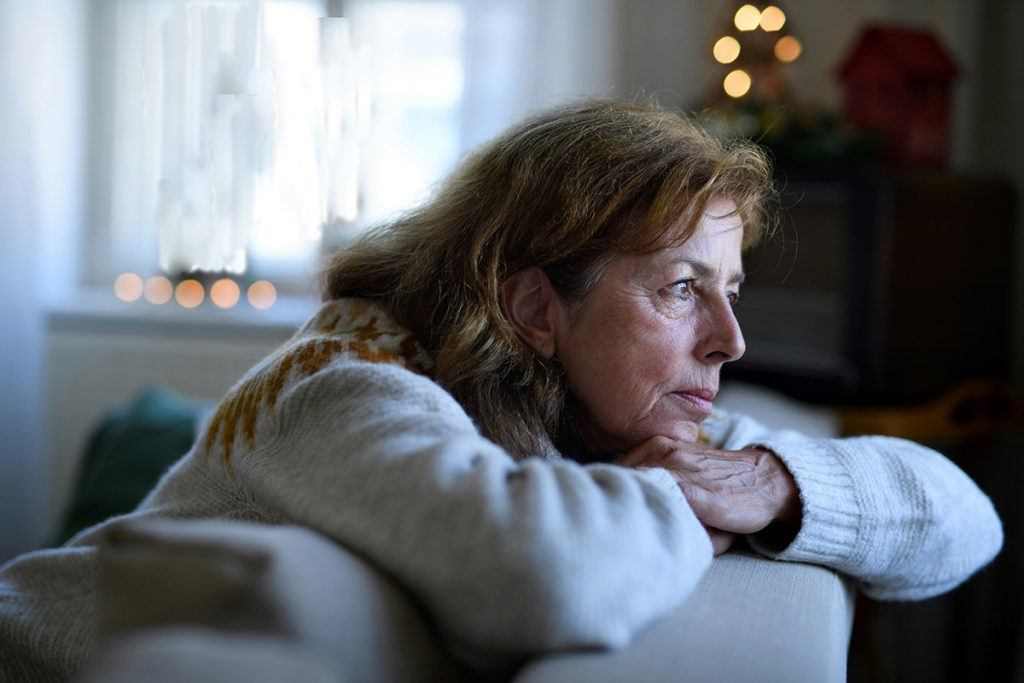The silence of a falling star
Lights up a purple sky
And as I wonder where you are
I’m so lonesome I could cry.
— Hank Williams Sr.
You are probably not surprised by loneliness following the death of your loved one — your dearest one in the world. Missing the person, their nearness, habits, loving ways or even not-so-loving ways, how they look, feel, sound, the touch of their skin, the illusion of never-ending days together.

You may understand intellectually that of course you are lonely in your grief — but don’t really get what is happening to you. Your world has changed, and loneliness has become part of your deepest moments of grief.
Loneliness is not simple even when you understand that your feelings are a natural reaction to loss.
Our loneliness of today is tied to old feelings from yesterday. Understanding the complexity of loneliness helps as you go forward in your life without your loved one.
Most of us have experienced social loneliness, especially in teen years or any time you felt you did not belong. Having a partner often eased your way — someone to hang out with, follow, lead, share life’s big and small moments. Your present loss rekindle old feelings of not being accepted. You miss your companion, closest friend.
Emotional loneliness is part of the complexity of your feelings. You yearn for that other who knows you so well but is no longer there to hear about your day, your headache, the driver who cut you off — those little everyday conversations.
Even if your relationship was not harmonious, you can be lonely for the heated conversations along with the hope that things will get better. The hope for change is now over. You feel a longing for what you did not have as well as all that was emotionally satisfying in your relationship.
Existential loneliness has been in your life since the day the doctor cut the cord at your birth. You are in your separate skin and no one can fully be joined with you. Having a partner, along with the busyness of adult life may have kept existential loneliness away. You didn’t have time to contemplate life and death, the meaning of it all. Your partner was the buffer from that kind of aloneness much of the time
In spite of all the pain and finality of death, life does go on and still offers opportunities for connection and joy. Let’s look at what helps us in dealing with loneliness:
Accept the normalcy of your feelings. You are not alone in feeling alone. This is not something you can avoid or escape. The only path for loneliness is through it — as you grieve and go on a journey of self-care and depth that can be transformative. When we are brave enough to choose to let love into our lives, to let a person that was once a stranger become our partner, we are not thinking of the ending when our hearts break open as death comes. Yet we willingly chose the path of connection.
If your partner was physically or mentally sick and death was a relief, loneliness still comes. You can learn to care for yourself without guilt for your human feelings of relief.
Social loneliness can be eased by deepening connections with family and friends. You don’t replace the person who died but you can continue to do activities with others that you enjoy.
Many people with reach out to you. Let yourself be a receiver especially in the early months. Later you will be ready to give of your time and energy in ways that are satisfying. Now open your arms to receive those who mean it when they offer help and companionship.
Look for support from people who get you, understand your feelings and don’t try to fix you.
Find a grief group where you will be with others who have lost their partners and truly understand what you are experiencing. There is mounting research that sharing your thoughts and feelings, your highs and lows in a support group is therapeutic as well as emotionally satisfying. Not everyone has friends or family around. A support group gives you an opportunity for social as well as emotional connection.
Look for ways to deepen your journey by facing existential loneliness. If you are religious, this is the time for exploring your beliefs and practicing rituals, especially rituals around death.
- Embrace spiritual awakening through meditation and any other spiritual practices that are of interest to you such as yoga, drumming circles, chanting, healing retreats.
- Go deep into the wonders of nature with all your senses. Don’t just walk in the garden; touch the flowers, smell their fragrance, brush your face on the softness of petals. Feel the rustle of the wind, the warmth of the sun, the splendor of the clouds.
- Look at the moon every night and know it is there even when not visible. Feel the awe of a star filled sky. Your link to the sky can ease your loneliness as you lose yourself in the vastness of the universe. You may even choose to let the natural world lead you to feel a bond with your beloved beyond death.
The pain of loneliness of loss will never be over but will ebb and flow as you face life with courage and support. We are always in our own separate selves but do not need to be alone as we struggle with the pain of loss. We can view ourselves in a circle of life with all our experiences there. We can visit our memories with our loved ones while knowing the circle can expand to include new memories and people. Sometimes we will be in dark places that seem unbearable while other moments will be filled with illumination as we live with all our feelings including loneliness.

